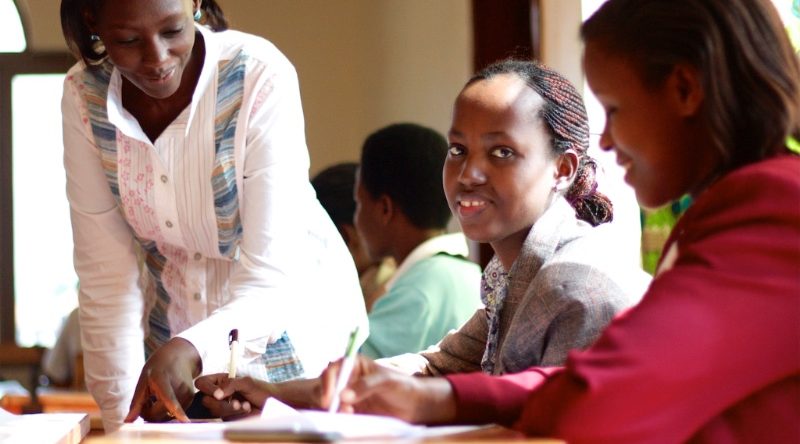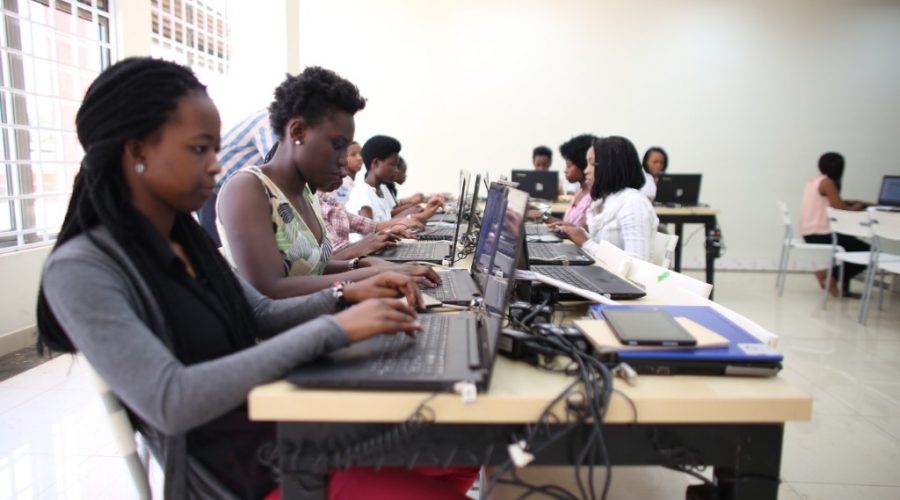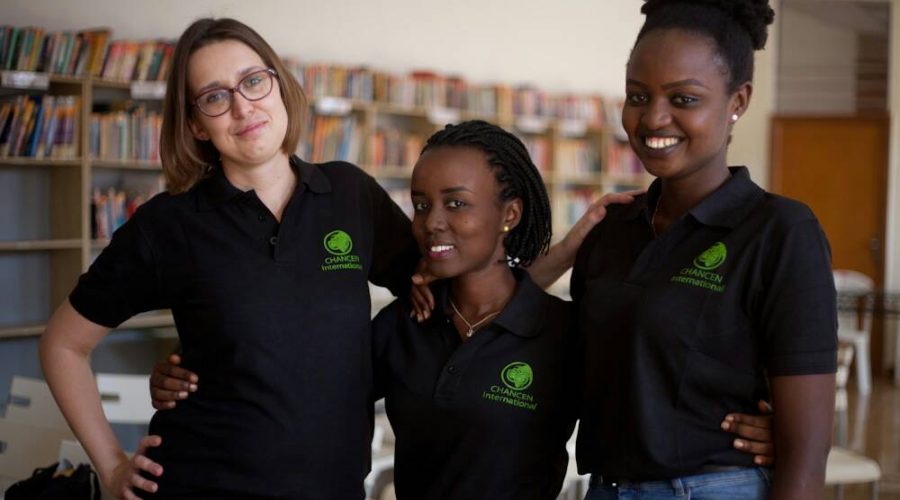The first 420 students have financed their studies through an Income Share Agreement
Kigali, Rwanda. On September 24, 2018, 420 female students began their studies at the renowned Akilah Institute. All of them finance their education using Income Share Agreements (ISA), a fair financing model for tuition fees. What is special about the financing concept is that it spans generations- the students’ income-dependent repayments finance the educations of the next generation of students.
The CHANCEN International gGmbH is the first provider of the ISA for higher education in sub-Saharan Africa. The social start-up is solving the problem of high tuition fees that up till now have barred access to private and public higher education for a large segment of the population in Africa. For now, CHANCEN International pays the tuition fees, which amount to around 2,400€ for a two-year course of study. After finishing their studies, the students pay back 9% of their income for eight years. Repayment is deferred each year the students don’t earn a certain minimum income. This solidarity model protects students from falling into a debt trap. In addition, a maximum repayment cap prevents the repayments from becoming a disproportionately high burden.
Repayments flow directly into the financing of the next generation’s tuition fees. In this way, the model works sustainably long-term and as a multiplier. CHANCEN International only needs start-up financing for the first generation of students. Its pioneering parent company, the CHANCEN eG, operates throughout Germany and shows that education financing is effective when the students’ potential is the focal point.
CHANCEN International’s first partner is the Akilah Institute. Thanks to their excellent orientation towards the needs of the local job market, 90% of graduates find a job directly after graduation- a very good number in Rwanda’s difficult job market. The Institute educates women in the areas of Information Systems, Business Management & Entrepreneurship, and Hospitality Management. Many students come from rural or suburban areas, like Ines Uwase. By earning a degree in Information Systems she can realize her dream: “A lot of women see IT as a branch for men. I don’t believe that and I take this as my opportunity to shine, and to change the world.”
Demand for the ISA is high. Currently CHANCEN International is only able to finance about a third of the interested students. But Batya Blankers, founder of CHANCEN International, has big plans: in cooperation with additional partners (Kepler Institute, FAWE), the first generation of students is expected to grow to at least 2,000 by June 2019. That corresponds to 22% of all university spots that the Rwandan government funds through grants. In order to support as many students as possible, Blankers is continually expanding her global support network.
“Fighting for access to education is my life’s mission,” Blankers says. “As a South African, I experienced and witnessed how many of us were not able to further our education after high school. All African countries have tuition fees for higher education. Millions of young people are denied the right to have a professional career. Young innovators cannot learn skills to solve societal problems and future entrepreneurs and leaders cannot be born. It is time to give this generation equal opportunities, so that more individuals can be active in the economic and social transformation of countries like Rwanda.”




